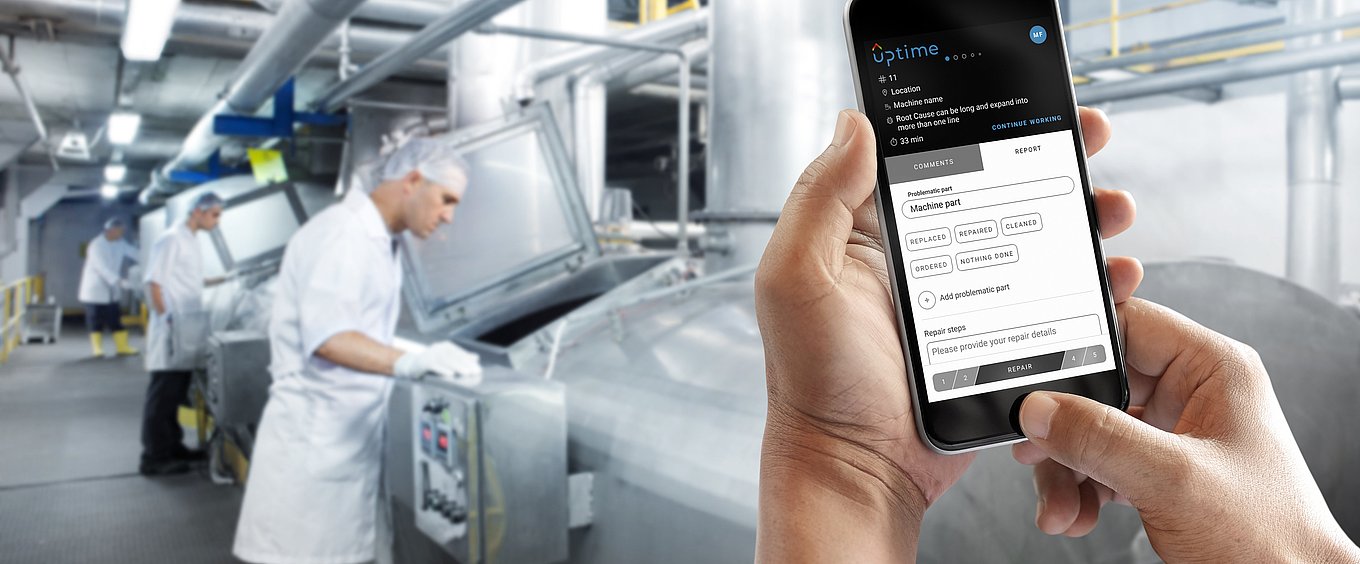1. Allocate duties in a more direct manner, coordinate collaborative tasks, make more effective decisions and resolve machine outages much quicker than ever before
Incident management via maintenance software
When the ‘right’ expert with the ‘right’ information, tools and replacement parts is assigned to a faulty machine, the outage should (theoretically) be able to be rectified quickly. In practice, however, the process takes longer: throughout the day, various operators will contact the operations manager in charge of maintenance to describe the issue they are encountering.
The operations manager will then seek to contact a service technician by phone (not always successfully). The operations manager also has to decide which of the multiple problems should be prioritized. The result: valuable time is lost. This is where Digital Uptime’s incident management capabilities enter the picture.
As Raab states, “The maintenance software overcomes communication barriers and guarantees the transfer of information. It makes communication quicker between the service technicians, machine operators and operations managers, and optimizes the way they interact with one another on a long-term basis.” To achieve this, Digital Uptime is based on a ticketing system:
- Every incident is recorded as a ticket and classified. The system is able to learn based on these tickets, independently recognizes recurring issues and allocates the relevant duties to exactly the right person.
- In other words, the maintenance software ensures for the first time that the information arrives where it is needed much quicker than before. “Digital Uptime helps users to make the right decision and offers recommendations regarding who the job should be given to,” explains Raab.
- The system also verifies that the maintenance employee is available and takes a dynamic approach to allocating tasks. Meanwhile, production managers have access to all maintenance results at any time.



